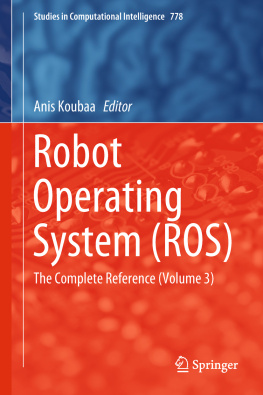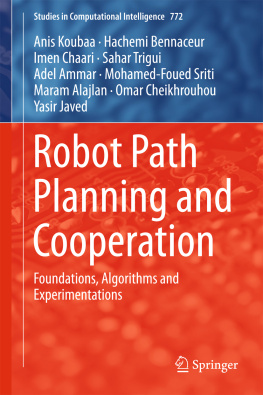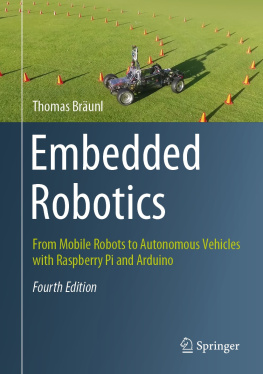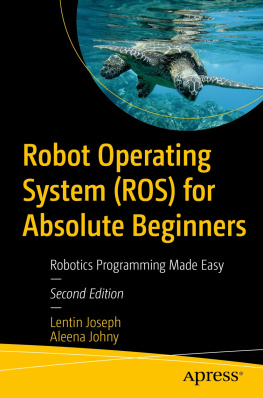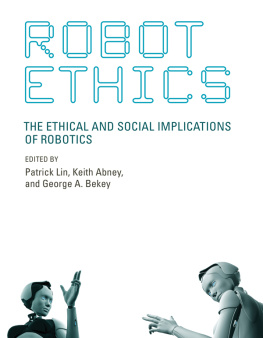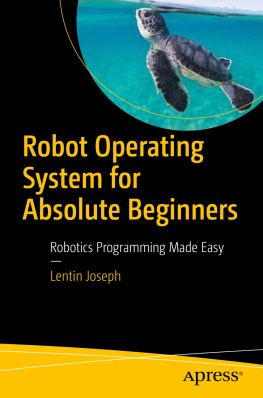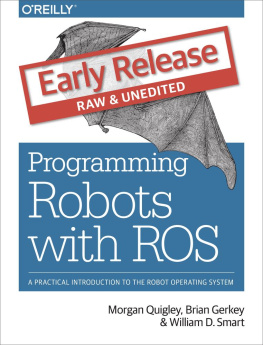Anis Koubaa - Robot Operating System (ROS): The Complete Reference (Volume 3)
Here you can read online Anis Koubaa - Robot Operating System (ROS): The Complete Reference (Volume 3) full text of the book (entire story) in english for free. Download pdf and epub, get meaning, cover and reviews about this ebook. year: 2018, publisher: Springer, genre: Home and family. Description of the work, (preface) as well as reviews are available. Best literature library LitArk.com created for fans of good reading and offers a wide selection of genres:
Romance novel
Science fiction
Adventure
Detective
Science
History
Home and family
Prose
Art
Politics
Computer
Non-fiction
Religion
Business
Children
Humor
Choose a favorite category and find really read worthwhile books. Enjoy immersion in the world of imagination, feel the emotions of the characters or learn something new for yourself, make an fascinating discovery.
- Book:Robot Operating System (ROS): The Complete Reference (Volume 3)
- Author:
- Publisher:Springer
- Genre:
- Year:2018
- Rating:5 / 5
- Favourites:Add to favourites
- Your mark:
Robot Operating System (ROS): The Complete Reference (Volume 3): summary, description and annotation
We offer to read an annotation, description, summary or preface (depends on what the author of the book "Robot Operating System (ROS): The Complete Reference (Volume 3)" wrote himself). If you haven't found the necessary information about the book — write in the comments, we will try to find it.
Building on the successful first and second volumes, this book is the third volume of the Springer book on the Robot Operating System (ROS): The Complete Reference. The Robot Operating System is evolving from year to year with a wealth of new contributed packages and enhanced capabilities. Further, the ROS is being integrated into various robots and systems and is becoming an embedded technology in emerging robotics platforms.
The objective of this third volume is to provide readers with additional and comprehensive coverage of the ROS and an overview of the latest achievements, trends and packages developed with and for it.
Combining tutorials, case studies, and research papers, the book consists of sixteen chapters and is divided into five parts. Part 1 presents multi-robot systems with the ROS. In Part 2, four chapters deal with the development of unmanned aerial systems and their applications. In turn, Part 3 highlights recent work related to navigation, motion planning and control. Part 4 discusses recently contributed ROS packages for security, ROS2, GPU usage, and real-time processing. Lastly, Part 5 deals with new interfaces allowing users to interact with robots.
Taken together, the three volumes of this book offer a valuable reference guide for ROS users, researchers, learners and developers alike. Its breadth of coverage makes it a unique resource.
Anis Koubaa: author's other books
Who wrote Robot Operating System (ROS): The Complete Reference (Volume 3)? Find out the surname, the name of the author of the book and a list of all author's works by series.

